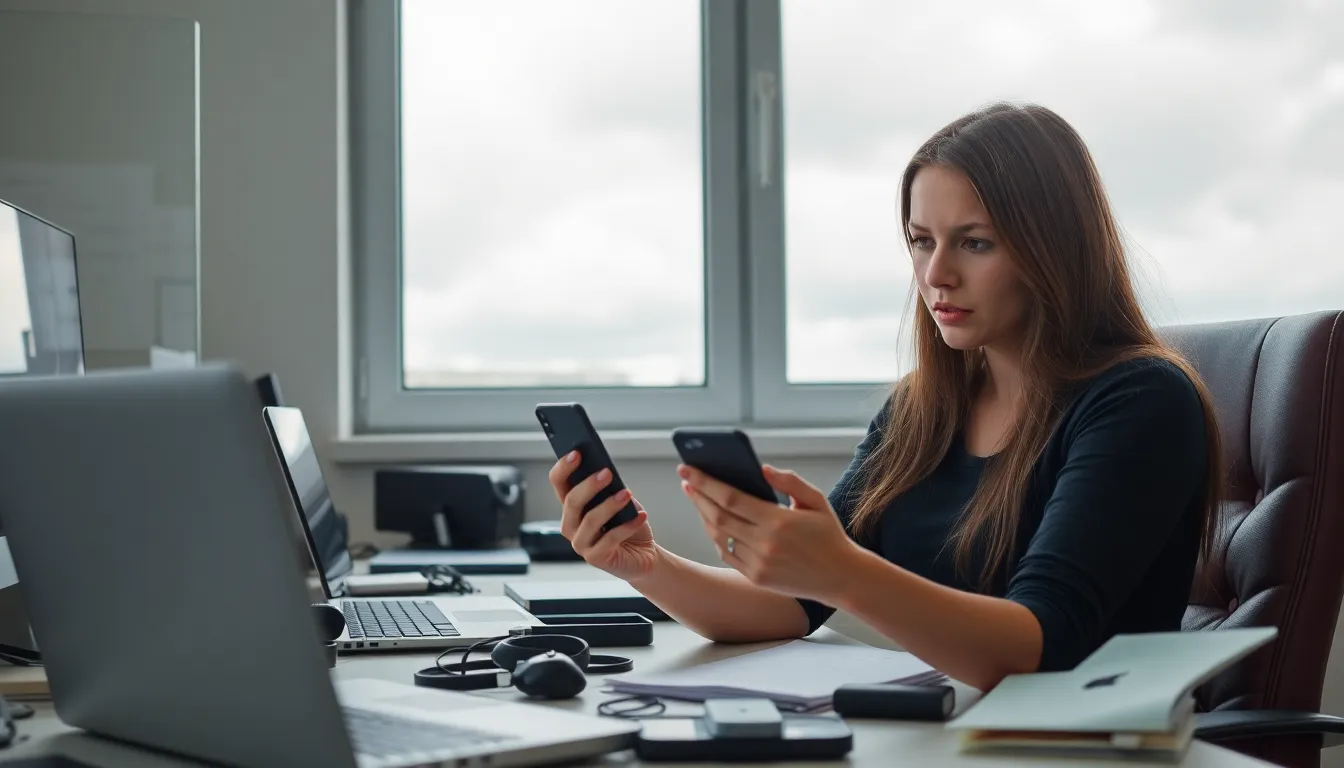Imagine this: you’re scrolling through your favorite memes when suddenly your iPhone starts acting like it’s auditioning for a sci-fi movie. Apps crash, strange messages pop up, and your phone’s battery drains faster than your will to go to the gym. Panic sets in—could it be hacked?
Don’t worry, it happens to the best of us. In a world where cyber villains lurk around every digital corner, knowing what to do if your iPhone gets compromised is crucial. With the right steps, you can outsmart those pesky hackers and reclaim your device. Get ready to dive into a guide that’ll turn you from a frazzled phone owner into a tech-savvy superhero, armed with the knowledge to tackle any hacking crisis.
Table of Contents
ToggleSigns Your iPhone Might Be Hacked
Recognizing signs of a potential hack can help prevent further damage. Several indicators suggest that an iPhone might be compromised.
Unusual App Behavior
Unusual app behavior often signals potential hacking. Apps may crash unexpectedly, or they might open without user interaction. Random pop-ups, especially those asking for sensitive information, warrant caution. Applications may also display unfamiliar icons or download additional apps without consent. Users should monitor the battery life closely, as a rapid drain could indicate malicious activity. Checking app permissions often reveals suspicious alterations. Security settings could become altered without prior knowledge, increasing vulnerability.
Strange Text Messages or Calls
Receiving strange text messages or calls raises red flags. Messages containing unfamiliar links often indicate phishing attempts. Calls that come from unknown numbers, especially with odd voicemails, deserve attention. If friends or contacts report strange communications from the user’s number, the device might be compromised. Moreover, sudden changes in message volume, such as an increase in spam, also suggest hacking. Users should remain vigilant of requests for sensitive information through texts or calls. Checking call logs can reveal unauthorized outgoing calls, hinting at potential exploitation.
Immediate Steps to Take

If an iPhone shows signs of hacking, immediate action is crucial. Users must prioritize securing their accounts and data to prevent further issues.
Disconnect from Wi-Fi and Cellular Data
Disconnecting from Wi-Fi or cellular data stops unauthorized access instantly. Turn on Airplane Mode, which disables all wireless connections. This action prevents hackers from retrieving personal information or sending data from the device. Check network settings to confirm the device stays offline. Avoid reconnecting until a thorough security assessment is complete.
Change Your Passwords
Changing passwords quickly safeguards sensitive accounts from potential breaches. Start with the Apple ID password, as it secures access to various services. Next, update passwords for email, social media, and banking apps, preferably using strong, unique combinations. Utilize password managers to simplify this process and store new credentials securely. Enable two-factor authentication on all accounts for added protection against future threats.
Long-Term Security Measures
Implementing long-term security measures is crucial for protecting an iPhone after a suspected hack. These steps enhance overall security and reduce the chances of future incidents.
Enable Two-Factor Authentication
Using two-factor authentication drastically improves account security. It requires a verification code in addition to a password. Activate this feature for Apple ID and other sensitive accounts. This extra step proves vital, as it makes unauthorized access significantly more challenging. Even if someone obtains a password, gaining the code will remain difficult. Stay informed about the methods for receiving the codes, whether through SMS or an authentication app.
Regularly Update Your iOS
Keeping the iOS updated plays a significant role in maintaining security. Regular updates include critical patches that address vulnerabilities. Check for updates frequently by navigating to Settings and selecting General, followed by Software Update. Enable automatic updates to ensure devices remain current. Install updates promptly to protect against potential threats. Each new version typically enhances features while improving overall stability and safety. Staying current contributes to a proactive approach to security.
When to Seek Professional Help
Recognizing when to consult a professional is crucial for managing a hacked iPhone effectively. Immediate action may prevent further damage.
Signs You Need Expert Assistance
Signs may indicate the need for professional help. Unexplained battery drain suggests unauthorized access. Regular encounters with unfamiliar apps or persistent pop-ups point to potential malware infection. Odd behavior such as your iPhone crashing frequently requires attention. Frequent connection interruptions or network issues might signal tampering.
Unusual data usage patterns can also raise red flags. Receiving messages or calls with unfamiliar links warrants a cautious approach. Noticing unauthorized charges on bank statements indicates a security breach. Taking these signs seriously can mean the difference between recovery and extensive damage.
Taking swift action is crucial if there’s any suspicion that an iPhone has been hacked. By recognizing the signs and implementing the recommended steps, users can mitigate risks and safeguard their personal information. Prioritizing account security and staying informed about the latest threats will enhance overall device protection.
In a world where digital security is paramount, being proactive can make all the difference. Regular updates and strong passwords are essential practices that contribute to a safer experience. If issues persist despite these measures, seeking professional help is a wise choice. Staying vigilant and informed empowers users to navigate the digital landscape confidently.




